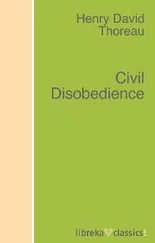they live. I do not mean to insist here on the disadvantage of hiring
compared with owning, but it is evident that the savage owns his
shelter because it costs so little, while the civilized man hires his
commonly because he cannot afford to own it; nor can he, in the long
run, any better afford to hire. But, answers one, by merely paying this
tax the poor civilized man secures an abode which is a palace compared
with the savage’s. An annual rent of from twenty-five to a hundred
dollars, these are the country rates, entitles him to the benefit of
the improvements of centuries, spacious apartments, clean paint and
paper, Rumford fireplace, back plastering, Venetian blinds, copper
pump, spring lock, a commodious cellar, and many other things. But how
happens it that he who is said to enjoy these things is so commonly a
_poor_ civilized man, while the savage, who has them not, is rich as a
savage? If it is asserted that civilization is a real advance in the
condition of man,—and I think that it is, though only the wise improve
their advantages,—it must be shown that it has produced better
dwellings without making them more costly; and the cost of a thing is
the amount of what I will call life which is required to be exchanged
for it, immediately or in the long run. An average house in this
neighborhood costs perhaps eight hundred dollars, and to lay up this
sum will take from ten to fifteen years of the laborer’s life, even if
he is not encumbered with a family;—estimating the pecuniary value of
every man’s labor at one dollar a day, for if some receive more, others
receive less;—so that he must have spent more than half his life
commonly before _his_ wigwam will be earned. If we suppose him to pay a
rent instead, this is but a doubtful choice of evils. Would the savage
have been wise to exchange his wigwam for a palace on these terms?
It may be guessed that I reduce almost the whole advantage of holding
this superfluous property as a fund in store against the future, so far
as the individual is concerned, mainly to the defraying of funeral
expenses. But perhaps a man is not required to bury himself.
Nevertheless this points to an important distinction between the
civilized man and the savage; and, no doubt, they have designs on us
for our benefit, in making the life of a civilized people an
_institution_, in which the life of the individual is to a great extent
absorbed, in order to preserve and perfect that of the race. But I wish
to show at what a sacrifice this advantage is at present obtained, and
to suggest that we may possibly so live as to secure all the advantage
without suffering any of the disadvantage. What mean ye by saying that
the poor ye have always with you, or that the fathers have eaten sour
grapes, and the children’s teeth are set on edge?
“As I live, saith the Lord God, ye shall not have occasion any more to
use this proverb in Israel.”
“Behold all souls are mine; as the soul of the father, so also the soul
of the son is mine: the soul that sinneth, it shall die.”
When I consider my neighbors, the farmers of Concord, who are at least
as well off as the other classes, I find that for the most part they
have been toiling twenty, thirty, or forty years, that they may become
the real owners of their farms, which commonly they have inherited with
encumbrances, or else bought with hired money,—and we may regard one
third of that toil as the cost of their houses,—but commonly they have
not paid for them yet. It is true, the encumbrances sometimes outweigh
the value of the farm, so that the farm itself becomes one great
encumbrance, and still a man is found to inherit it, being well
acquainted with it, as he says. On applying to the assessors, I am
surprised to learn that they cannot at once name a dozen in the town
who own their farms free and clear. If you would know the history of
these homesteads, inquire at the bank where they are mortgaged. The man
who has actually paid for his farm with labor on it is so rare that
every neighbor can point to him. I doubt if there are three such men in
Concord. What has been said of the merchants, that a very large
majority, even ninety-seven in a hundred, are sure to fail, is equally
true of the farmers. With regard to the merchants, however, one of them
says pertinently that a great part of their failures are not genuine
pecuniary failures, but merely failures to fulfil their engagements,
because it is inconvenient; that is, it is the moral character that
breaks down. But this puts an infinitely worse face on the matter, and
suggests, beside, that probably not even the other three succeed in
saving their souls, but are perchance bankrupt in a worse sense than
they who fail honestly. Bankruptcy and repudiation are the springboards
from which much of our civilization vaults and turns its somersets, but
the savage stands on the unelastic plank of famine. Yet the Middlesex
Cattle Show goes off here with _éclat_ annually, as if all the joints
of the agricultural machine were suent.
The farmer is endeavoring to solve the problem of a livelihood by a
formula more complicated than the problem itself. To get his
shoestrings he speculates in herds of cattle. With consummate skill he
has set his trap with a hair spring to catch comfort and independence,
and then, as he turned away, got his own leg into it. This is the
reason he is poor; and for a similar reason we are all poor in respect
to a thousand savage comforts, though surrounded by luxuries. As
Chapman sings,—
“The false society of men—
—for earthly greatness
All heavenly comforts rarefies to air.”
And when the farmer has got his house, he may not be the richer but the
poorer for it, and it be the house that has got him. As I understand
it, that was a valid objection urged by Momus against the house which
Minerva made, that she “had not made it movable, by which means a bad
neighborhood might be avoided;” and it may still be urged, for our
houses are such unwieldy property that we are often imprisoned rather
than housed in them; and the bad neighborhood to be avoided is our own
scurvy selves. I know one or two families, at least, in this town, who,
for nearly a generation, have been wishing to sell their houses in the
outskirts and move into the village, but have not been able to
accomplish it, and only death will set them free.
Granted that the _majority_ are able at last either to own or hire the
modern house with all its improvements. While civilization has been
improving our houses, it has not equally improved the men who are to
inhabit them. It has created palaces, but it was not so easy to create
noblemen and kings. And _if the civilized man’s pursuits are no
worthier than the savage’s, if he is employed the greater part of his
life in obtaining gross necessaries and comforts merely, why should he
have a better dwelling than the former?_
But how do the poor minority fare? Perhaps it will be found, that just
in proportion as some have been placed in outward circumstances above
the savage, others have been degraded below him. The luxury of one
class is counterbalanced by the indigence of another. On the one side
is the palace, on the other are the almshouse and “silent poor.” The
myriads who built the pyramids to be the tombs of the Pharaohs were fed
on garlic, and it may be were not decently buried themselves. The mason
Читать дальше












